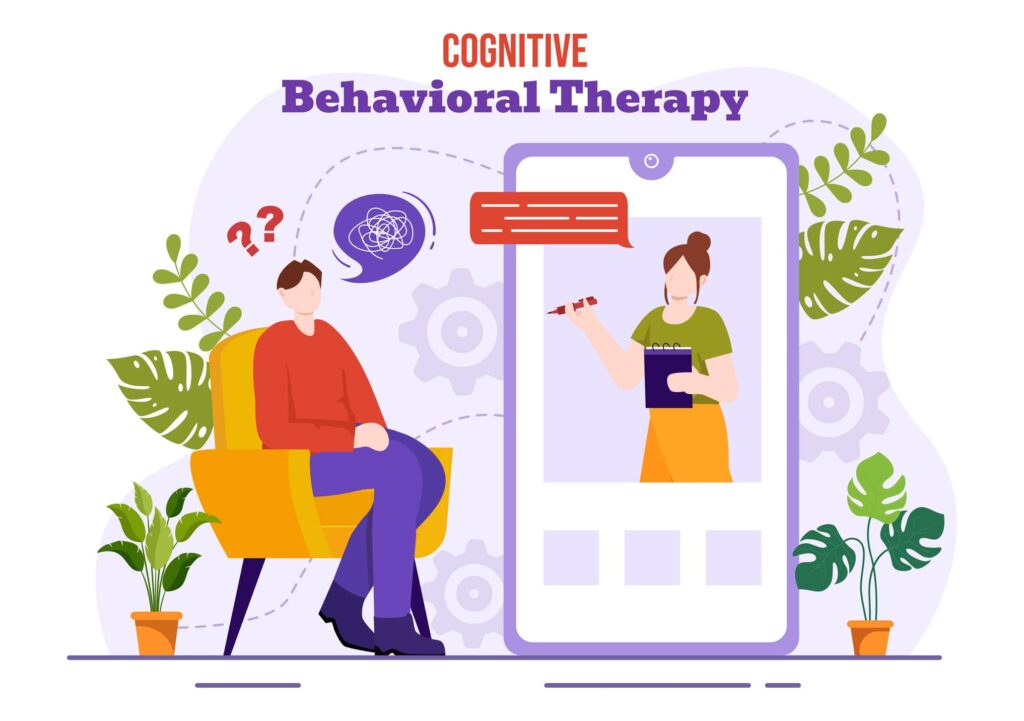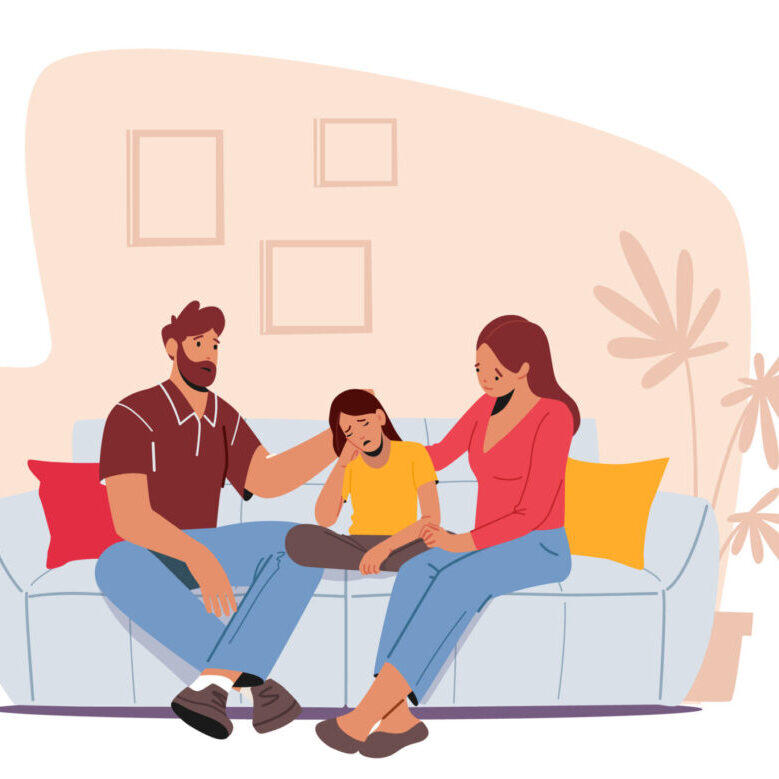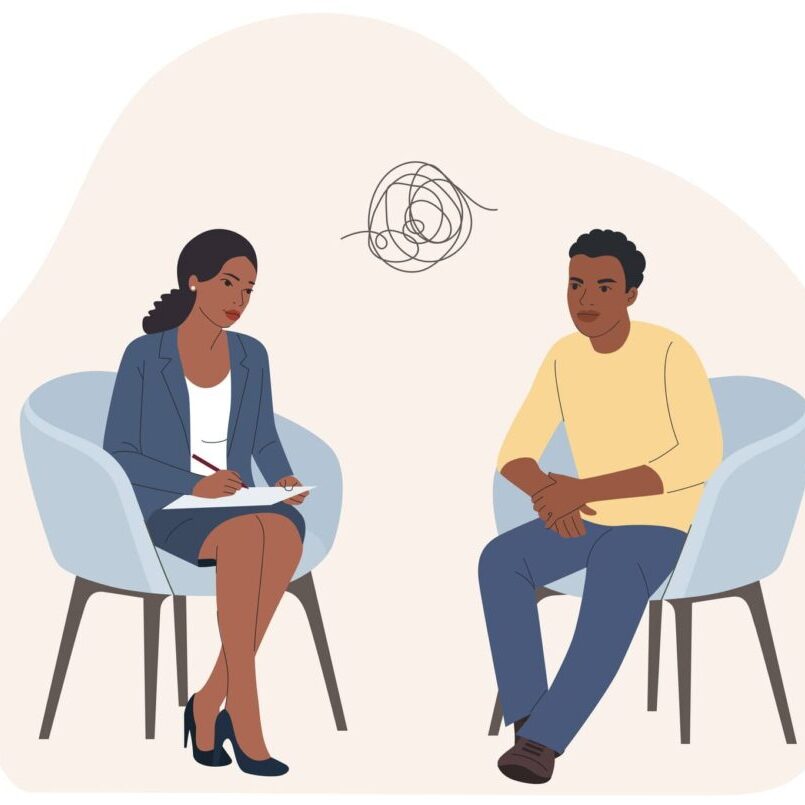Exploring Different Types of Virtual or Online Counseling: Which is Right for You?

Imagine sitting in your living room, talking to someone who truly gets you—without ever leaving your favorite chair. Therapy has entered the digital age, and it’s not just convenient; it’s transformative. From helping you decode the chatter in your mind to healing the scars no one else sees, online counseling isn’t just an alternative to in-person therapy—it’s a revolution in mental health care.
But let’s face it: therapy options can feel like an overwhelming buffet. Should you go for something structured like CBT, or dive into the deeper waters of IFS? Maybe couples counseling or trauma-focused therapy is what you need. Whatever it is, virtual counseling makes specialized support accessible in ways that weren’t possible before—whether you’re in the heart of Chicago or a small Illinois town like Champaign. Let’s explore the different types of online mental health counseling and find the one that’s right for you.
What is Online Counseling, and How Does It Work?
Online counseling, also known as teletherapy, connects you with a licensed therapist via video calls or phone calls. Sessions are conducted in much the same way as in-person therapy, covering topics like anxiety, stress, relationship challenges, trauma, depression, and other mental health conditions.
Here’s what you can expect during your online therapy journey:
- Initial Setup: Find a therapist licensed in your state and schedule your sessions. At Tandem Psychology we can help match you to an online therapist that meets your needs.
- Privacy and Comfort: Attend sessions from a private space with a stable internet connection (or via phone).
- Confidentiality: Therapists follow the same, strict confidentiality guidelines to ensure your privacy.
- Ease of Access: No need to commute—your session is just a click away.
And, it’s effective! A 2022 meta-analysis published in JMIR Mental Health evaluated the efficacy of telehealth versus face-to-face psychotherapy across various mental health conditions. The study concluded that there were no significant differences in symptom severity between the two modalities immediately after treatment or at follow-up intervals, indicating that telehealth is as effective as traditional in-person therapy.
Types of Online Therapy: Which is Right for You?
1. Cognitive Behavioral Therapy (CBT)
CBT is one of the most common forms of online counseling. It helps people to identify and change negative thought patterns that influence their behaviors and emotions.
When to choose CBT:
- You’re dealing with a specific anxiety, depression, or phobias.
- You want actionable strategies to challenge irrational thoughts.
- You prefer traditional talk therapy.
Key techniques used:
- Cognitive restructuring: Replacing unhelpful beliefs with realistic ones.
- Behavioral activation: Engaging in positive activities to reduce depressive symptoms.
- Mindfulness practices: Staying present without judgment.
2. Dialectical Behavior Therapy (DBT)
A specialized form of CBT, DBT is designed for people experiencing intense emotions or relational challenges.
When to choose DBT:
- You struggle with emotional dysregulation, self-harm, or eating disorders.
- You want to improve relationships and build resilience.
Core skills taught:
- Mindfulness: Staying present in the moment.
- Distress tolerance: Handling crises without impulsive actions.
- Emotion regulation: Managing intense feelings effectively.
- Interpersonal effectiveness: Enhancing communication and setting boundaries.
3. Eye Movement Desensitization and Reprocessing (EMDR)
EMDR is particularly effective for trauma, PTSD, and C-PTSD. It involves guided eye movements to help the brain process traumatic memories.
When to choose EMDR:
- You’re working through unresolved trauma or chronic anxiety.
- You want a scientifically supported method for reducing emotional distress.
4. Internal Family Systems (IFS) Therapy
IFS, or Internal Family Systems Therapy, is a unique approach to understanding and healing the different “parts” within ourselves. Each of us has inner voices or parts that often pull us in different directions—for example, the part that seeks success versus the part that fears failure.
When to choose IFS Therapy:
- You struggle with inner conflict, self-doubt, or unresolved trauma.
- You have few “symptoms,” but generally don’t feel satisfied and good.
- You want to be more compassionate to yourself.
- Traditional talk therapies have not worked for you.
How it works: IFS therapists help you identify and connect with the various parts of your personality. By fostering self-compassion and understanding, you can integrate these parts and work toward greater emotional harmony. Online IFS therapy allows clients to explore their inner world from the comfort of home, which can feel especially safe and conducive to introspection.
5. Mindfulness-Based Therapy
Mindfulness-based approaches combine mindfulness practices and meditation to reduce stress and improve emotional well-being.
When to choose Mindfulness-Based Therapy:
- You’re struggling with chronic stress or want to enhance relaxation.
- You’re open to integrating meditation into your routine.
- You’re struggling with a chronic illness, the end of a relationship, or dread about politics.
Online Therapy Modalities: Finding a Fit!
Online therapy isn’t limited to just one modality—it’s a flexible framework where various therapy types can be applied across different modalities. Whether it’s cognitive behavioral therapy (CBT) for individual sessions, emotionally focused therapy (EFT) for couples, or systems-based approaches for families, these modalities adapt to meet diverse needs and goals.
Individual Therapy
Individual therapy is a classic and widely used format for mental health support, where one-on-one sessions focus entirely on your personal experiences, challenges, and goals.
When to choose Individual Therapy:
- You want a safe space to explore your thoughts and emotions.
- You’re dealing with personal challenges like anxiety, depression, grief, or life transitions.
How it works: Your therapist works with you to identify patterns, develop coping strategies, and set goals for personal growth. Online individual therapy mirrors the intimacy of in-person sessions, making it easy to connect deeply with your therapist while eliminating the need to travel. It’s ideal for those seeking personalized, focused support. Notably, individual therapy is the modality of therapy and your individual therapist will also be applying a specific approach, like those outlined here.
Couples Counseling
Couples counseling, also known as relationship therapy, helps romantic partners strengthen their connection and resolve conflicts in a supportive, structured environment. While all partners participate, the relationship is the focus of therapy.
When to choose Couples Counseling:
- You’re experiencing communication breakdowns, trust issues, or recurring arguments.
- You want to deepen your relationship or work through a specific challenge.
- You are going through or expecting a life transition and want to prepare yourselves and the relationship for the change.
How it works: An online couples therapist facilitates conversations to help both partners understand each other’s perspectives, build empathy, and develop healthier ways of relating. Virtual couples counseling is particularly convenient for busy schedules or for couples who live apart, offering the tools to rebuild trust and foster a stronger bond.
Family Therapy
Family therapy focuses on improving dynamics and communication within a family unit. Like couples therapy, all members of the family participate and the focus is on the family dynamics and the impact of those dynamics on individual family members as well as the family as a whole.
When to choose family therapy:
- You’re navigating family conflict or major life transitions.
- You want to strengthen familial bonds and mutual understanding.
- Political differences have disrupted the sense of cohesiveness and connection.
How it works: Therapists view problems as interconnected with family dynamics and work collaboratively to resolve them.
Frequently Asked Questions About Online Counseling
1. Is Online Counseling Effective?
Absolutely. Multiple studies have consistently shown that online counseling is as effective as in-person therapy for a variety of mental health conditions, including anxiety, depression, and PTSD (Andersson et al., 2018; Hailey et al., 2020; Luo et al., 2022). Meta-analyses confirm that symptom improvement is comparable between virtual and face-to-face modalities, both immediately following treatment and at follow-up intervals. This growing body of evidence underscores the reliability and impact of virtual counseling across diverse populations and therapeutic needs.
2. How Do I Find a Qualified Online Therapist?
Tandem Psychology can match you with a licensed therapist specializing in your needs.
3. What Should I Expect During My First Session?
Like an in-person session, your therapist will ask about your goals, mental health history, and any current challenges. This conversation helps them develop a tailored treatment plan.
4. Is Online Counseling Covered by Insurance?
Yes! In July 2021, Governor J.B. Pritzker signed Illinois House Bill 3308 into law, which expanded access to telehealth services across the state of Illinois. This legislation mandates that health insurance policies cover clinically appropriate and medically necessary telehealth services, including mental health counseling, on the same basis as in-person services.
The Illinois law also prohibits insurers from imposing additional requirements or limitations on telehealth services, ensuring that patients have uninterrupted access to virtual care.
As always, coverage specifics can vary depending on your insurance provider and plan. It’s advisable to contact your insurer directly to confirm the details of your coverage for online counseling services. We can also help you verify coverage before starting therapy.
5. What Are the Technical Requirements?
You’ll need a reliable internet connection, a computer or smartphone, and a private space. Using headphones can enhance audio quality and privacy.
A Personal Story: Online Counseling Extends Specialized Support
As a therapist in Chicago, I’ve had the privilege of working with clients from all over Illinois through online counseling. One experience that stands out involved a gay man attending college at the University of Illinois in Champaign.
He reached out to me after struggling to find a local LGBT affirming therapist who could truly understand his unique needs. Living in a smaller city like Champaign, Illinois, he felt isolated and unsure of where to turn for support.
Thanks to the flexibility of online counseling, we were able to connect for weekly sessions. From my office in Chicago, I helped him navigate the challenges of being a gay man in a more conservative environment while balancing the pressures of school. Together, we explored strategies to build confidence, establish a supportive community, and manage stress.
This experience reinforced the power of online counseling to bridge the gap for individuals in areas of Illinois where specialized care isn’t always accessible. It was incredibly rewarding to see him gain clarity and confidence, knowing that our virtual sessions had a meaningful impact on his life.
Take the First Step Toward Better Mental Health
Online counseling has revolutionized how we access mental health care, offering flexibility and convenience without compromising effectiveness. Whether you’re drawn to IFS, CBT, DBT, couples counseling, or another approach, there’s a virtual counseling option tailored to your needs.
Ready to explore the right type of online mental health counseling for you? Let us guide you. Reach out to schedule your first session today!
This blog is made for informational and educational purposes only. It is not medical advice. The information in this blog is not intended to (1) replace a one-on-one relationship with a qualified licensed health care provider, (2) create or establish a provider-patient relationship, or (3) create a duty for us to follow up with you.



